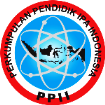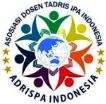Development of a Quran-Integrated Science Module to Empower the Religious Attitudes of Seventh-Grade Students in Ecology Material
Abstract
This study aims to develop a Quran-integrated science module to empower the religious attitudes of seventh-grade students in ecology material. The research employed a Design-Based Research (DBR) approach using Reeves' model, which consists of four stages: problem identification, design, iteration, and reflection. A total of 85 seventh-grade students from SMP Al Azhar Syifa Budi Solo and SMPIT Insan Mulia Surakarta were selected through random sampling and divided into control and experimental groups. Data analysis techniques included descriptive analysis for module feasibility based on expert validation, N-Gain score analysis to measure learning improvement, and an independent sample t-test to evaluate module effectiveness. The expert validation results showed a score of 88.8%, indicating the module’s high validity. Teacher and student responses toward the module were very positive, with scores of 90.35% and 94.29%, respectively. The independent sample t-test results revealed a significant difference (p < 0.05) in students' religious attitudes between the experimental and control groups, where students using the module showed higher religious attitudes. Additionally, the N-Gain analysis indicated a moderate improvement, with values of 0.37 for the experimental class and 0.32 for the control class. Based on these findings, it can be concluded that the developed Quran-integrated science module is both feasible and effective in empowering students' religious attitudes.
Keywords: integrated Quran, religious attitude, science module
Full Text:
PDFReferences
Azmi, F., & Nadia, M. (2022). Islamization of Knowledge. PENDALAS: Jurnal Penelitian Tindakan Kelas Dan Pengabdian Masyarakat, 2(1), 19–30. https://doi.org/10.35632/ajiss.v28i3.335
Campbell, D. T., & Stanley, J. C. (2015). Experimental and Quasi-Experimental Designs for Research. Ravenio books.
Choirudin, Setiawan, A., Anwar, M. S., Riyana, E., Abrori, M. S., & Wahyudi, W. (2021). Development of Qur’an and Hadith-Based Mathematics Module for Students’ Mathematical Understanding and Religious Character. Jurnal Tatsqif, 19(2), 114–132. https://doi.org/10.20414/jtq.v19i2.4086
Fajar, D. M., & Izzah, I. (2023). Rancangan Modul IPA Materi Lapisan Bumi Terintegrasi Ayat-Ayat Al-Qur’an ntuk Siswa Smp/MTs di Lingkungan Pesantren. LENSA (Lentera Sains): Jurnal Pendidikan IPA, 13(1), 20–29. https://doi.org/10.24929/lensa.v13i1.276
Fuadi, A., & Suyatno, S. (2020). Integration of Nationalistic and Religious Values in Islamic Education: Study in Integrated Islamic School. Randwick International of Social Science Journal (RISS), 1(3), 555–570. https://doi.org/10.47175/rissj.v1i3.108
Hadiyanti, N. F. D., Hobri, Prihandoko, A. C., Susanto, Murtikusuma, R. P., Khasanah, N., & Maharani, P. (2021). Development of Mathematics E-Module With STEM-Collaborative Project Based Learning to Improve Mathematical Literacy Ability of Vocational High School Students. Journal of Physics: Conference Series, 1839(1). https://doi.org/10.1088/1742-6596/1839/1/012031
Hake, R. R. (1999). Analyzing Change/Gain Scores. Indiana University.
Ihsan, M. N., Ahmad, N., Hasanah, A., & Suhartini, A. (2021). Islamic Boarding School Culture Climate in Forming The Religious Attitude of Islamic Students in Modern and Agrobusiness Islamic Boarding Schools. Nazhruna: Jurnal Pendidikan Islam, 4(2), 362–382. https://doi.org/10.31538/nzh.v4i2.1492
Kartika, I., Saepudin, S., Norman, E., & Uswatiyah, W. (2023). Instilling Religious Character Values in Elementary School Students Through Islamic Religious Education Learning. JPPI (Jurnal Penelitian Pendidikan Indonesia), 9(4), 100–107. https://doi.org/10.29210/020232598
Kholis, N., Kartowagiran, B., & Mardapi, D. (2020). Development and Validation of an Instrument to Measure a Performance of Vocational High School. European Journal of Educational Research, 9(3), 955–966. https://doi.org/10.12973/EU-JER.9.3.955
Madani, R. A. (2016). Islamization of Science. International Journal of Islamic Thought, 9(1), 51–63. https://doi.org/10.24035/ijit.09.2016.006
Mariyono, D., Maskuri, & Ghony, M. D. (2023). the Spirit of 45 the Glove People ( Value of Multicultural Islamic Education As a Student Enterpreneur Spirit At Bahrul Maghfiroh Boarding School , Merjosari ,. JHSS (Journal of Humanities and Social Studies), 07(02), 490–496. https://doi.org/10.33751/jhss.v7i2.7358
Maulidan, R., Fadli, A., & Mukminah. (2023). Development of an Integrated Science Module of the Quran on the Subject Material of the Human Circulation System to Grow Religious Attitude of Students of Class VIII MTS Rosita. Formosa Journal of Sustainable Research, 2(6), 1513–1524. https://doi.org/10.55927/fjsr.v2i6.4376
Mustafa, N. H., Hussein, N. H., & Baba, S. (2020). English language problem-based learning via user-generated 3D world Roblox module: Need analysis. myscholar.umk.edu.my. http://myscholar.umk.edu.my/handle/123456789/1512
Ok, Ü. (2016). The Ok-Religious Attitude Scale (Islam): Introducing an instrument originated in Turkish for international use. Journal of Beliefs and Values, 37(1), 55–67. https://doi.org/10.1080/13617672.2016.1141529
Purwati, N., Zubaidah, S., Corebima, A. D., & Mahanal, S. (2018). Increasing Islamic Junior High School Students Learning Outcomes Through Integration of Science Learning and Islamic Values. International Journal of Instruction, 11(4), 841–854. https://doi.org/10.12973/iji.2018.11453a
Rahmayani, S., Mahsul, A., & Sholehah, N. (2022). Pengembangan Modul Sistem Pencernaan Manusia dengan Mengintegrasikan Ayat-Ayat Al-Qur’an. JEP (Jurnal Eksakta Pendidikan), 6(1), 69–76. https://doi.org/10.24036/jep/vol6-iss1/647
Reeves, T. C. (2006). Design Research From A Technology Perspective. Educational Design Research, 52–66. https://doi.org/10.4324/9780203088364-13
Samsul, F. (2023). Islamization of Science. International Seminar and Conference on Islamic Studies, 2, 102–112.
Sari, M., Zamista, A. A., Asrar, A., Deswita, P., & Putra, I. S. (2022). Pelatihan Pengambangan Perangkat Pembelajaran IPA Terpadu Terintegrasi Al-Quran Berbasis Blended Learning. Jurnal Pengabdian Pada Masyarakat, 7(4), 979–988. https://doi.org/10.30653/002.202274.203
Sawaluddin, S., Harahap, K. S., Rido, I., & Supriono, I. A. (2022). The Islamization of Science and Its Consequences: An Examination of Ismail Raji Al-Faruqi’s Ideas. Jurnal Pendidikan Agama Islam (Journal of Islamic Education Studies), 10(2), 115–128. https://doi.org/10.15642/jpai.2022.10.2.115-128
Stratton, S. J. (2019). Quasi-Experimental Design (Pre-Test and Post-Test Studies) in Prehospital and Disaster Research. Prehospital and Disaster Medicine, 34(6), 573–574. https://doi.org/10.1017/S1049023X19005053
Taja, N., Nurdin, E. S., Kosasih, A., Suresman, E., & Supriyadi, T. (2021). Character education in the pandemic era: A religious ethical learning model through Islamic education. International Journal of Learning, Teaching and Educational Research, 20(11), 132–153. https://doi.org/10.26803/ijlter.20.11.8
DOI: http://dx.doi.org/10.24014/jnsi.v8i1.32556
Refbacks
- There are currently no refbacks.

Journal of Natural Science and Integration
E-ISSN: 2620-5092 P-ISSN: 2620-4967
Published By:
Department of Science Education, Faculty of Education and Teacher Training,
State Islamic University of Sultan Syarif Kasim Riau, Indonesia
Mailing Address:
Jl. H.R Soebrantas Km. 15 No. 155
Kelurahan Simpang Baru
Kecamatan Tuah Madani, Pekanbaru, Riau, Indonesia
Email: jnsi.tadrisipa@uin-suska.ac.id
Indexed By:
Journal of Natural Science and Integration is licensed under a Creative Commons Attribution 4.0 International License.


_-_Copyy2.png)






.jpg)
.png)
.jpg)
.jpg)




